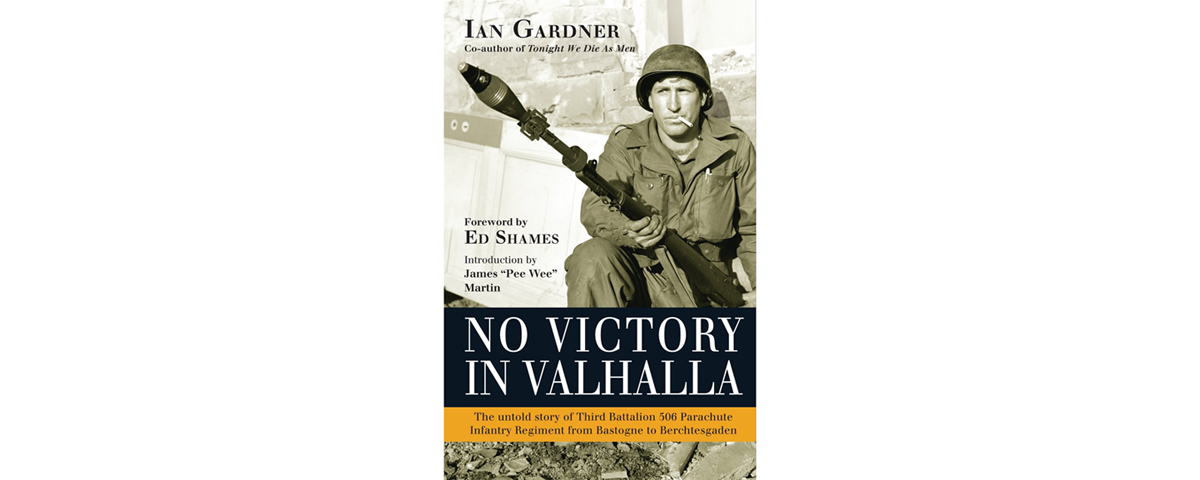No Victory in Valhalla: The Untold Story of 3rd Battalion, 506th Parachute Infantry Regiment, From Bastogne to Berchtesgaden, by Ian Gardner, Osprey Publishing, Oxford, United Kingdom, $27.95
Unit histories are tremendously difficult to execute well. Seldom has one been more painstakingly assembled than in this third volume of Gardner’s history of the 3rd Battalion, 506th PIR.
Though overshadowed by the “Band of Brothers” of the 506th’s 2nd Battalion, this unit charted a similarly astonishing path from Normandy to Operation Market Garden (covered in the prior editions of the trilogy) to the Siege of Bastogne, the Colmar Pocket, Dachau and Berchtesgaden (related here). Gardner, himself a former British paratrooper, weaves a polyphonic tale of individual soldiers, relating the countless incidents of combat and survival that informed the overall conflict. It is a meticulous accounting. In the intro to his first volume he noted that 101st Airborne histories had inaccurately mapped the locations of key bridges; in researching this volume, he pinpointed the bridges in question.
His principal accomplishment is presenting the experience of combat at a granular level, specific circumstances related by the soldiers who survived particular ordeals. While the patchwork of accounts proves bewildering at first, his narrative soon assumes drive and coherence.
Accidents pop up throughout the narrative, such as the time one oblivious tanker ran his Sherman into the barrel of a Panzer he hadn’t noticed on a road he believed to be clear. As in any extended conflict the soldiers also battled the elements and privation. Some cut felt lining from supply crates to provide necessary insulation. Other desperate souls resorted to eating rancid rabbit stew.
Gardner relates moments of dark humor that provided soldiers necessary relief from the stress of combat. In one sector GIs got in the habit of shaking hands with a German corpse with an outstretched arm. At war’s end Lieutenant Ed Shames received the surrender of Luftwaffe Field Marshal Albert Kesselring, who, while otherwise courteous, refused to surrender his pistol. “Drawing my .45,” Shames recalled, “I pointed it at his head, which seemed to do the trick.”
—Anthony Paletta





